Learning a language is about communication between people of different cultures and societies. When studying a language, you will be studying its culture as well as reflecting on your experiences in relation to your own first language.
"If I am selling to you, I speak your language. If I am buying, dann müssen Sie Deutsch sprechen."
“
Subjects
- French (Pearson)
- German (AQA)
- Spanish (AQA)
- Mandarin (Pearson)
Early entry for Japanese and Russian is possible
Languages and the future
You may already be considering a career where modern languages will be a necessity: in banking, publishing, diplomacy, commerce or the European civil service. Languages can form useful combinations with most subjects, which you may want to continue at university.
"If you talk to a man in a language he understands, that goes to his head. If you talk to him in his language, that goes to his heart."
“
A modern language combined with a Law, Science, Engineering or Business Management course, for example, will prove an attractive combination to employers both in the UK and in Europe, or indeed in a global employment context.
"Students who have studied one or more foreign languages are highly sought after by universities for language degrees or courses with a language component."
“
Now, and increasingly in the future, career mobility will demand excellent language skills from a multilingual, flexible workforce. Beyond these practical considerations, you may want to find out about new cultures and seek opportunities to share experiences and thoughts with others of a different linguistic and cultural background. This will be in itself a worthwhile journey of discovery and will continue to bring you joy in years to come.
"Companies will need many more people with strong language skills to help them enter new markets like China in the future."
“
Languages at A Level
Communication is at the core of your language course, both in the spoken and written form. The A Level language courses are designed to develop all the linguistic skills you have already been practising at GCSE but using increasingly sophisticated vocabulary and structures. They constitute an integrated study with a focus on language, culture and society.
"The man who does not know other languages, unless he is a man of genius, necessarily has deficiencies in his ideas."
“
At the end of the course, you will feel confident enough to consider a career where your knowledge of foreign languages will open up exciting new prospects in a very competitive, global job market. It fosters a range of transferable skills including communication, critical thinking, research skills and creativity, which are valuable to the individual and to society.
"He who does not know foreign languages does not know anything about his own."
“
Course content
Content is based on themes addressing a range of social issues and trends, as well as aspects of the political and artistic cultures of the countries and communities where the language studied is spoken.
Oral, aural, reading and writing skills are practised within these themes and this provides a balanced framework for progression.
Our approach
As a language student, you will be encouraged to express yourself clearly on a wide range of contemporary social and political issues, developing your own thoughts and opinions in discussions and essays. Indeed, sharing and developing ideas can be one of the many rewarding aspects of language learning. Your teachers will conduct classes in the target language in groups deliberately kept small to enable everyone to participate actively and with confidence. You will often be encouraged to work independently.
Beyond the classroom
You are encouraged to take part in the broad range of visits and exchanges available or to arrange your own stay abroad independently. These trips are a congenial way to develop language skills and to gain insight into the societies and cultures in which the language is spoken. We offer study trips to China, France and Spain. We participate in a scholarship programme to Keio, Japan. There is an opportunity to take part in a work experience programme with our partner school in Munich, Germany. Closer to home, we offer regular trips to cultural events at theatres, cinemas and galleries.
Closer to home trips
French Trip to the Chanel Exhibition at the V&A in London
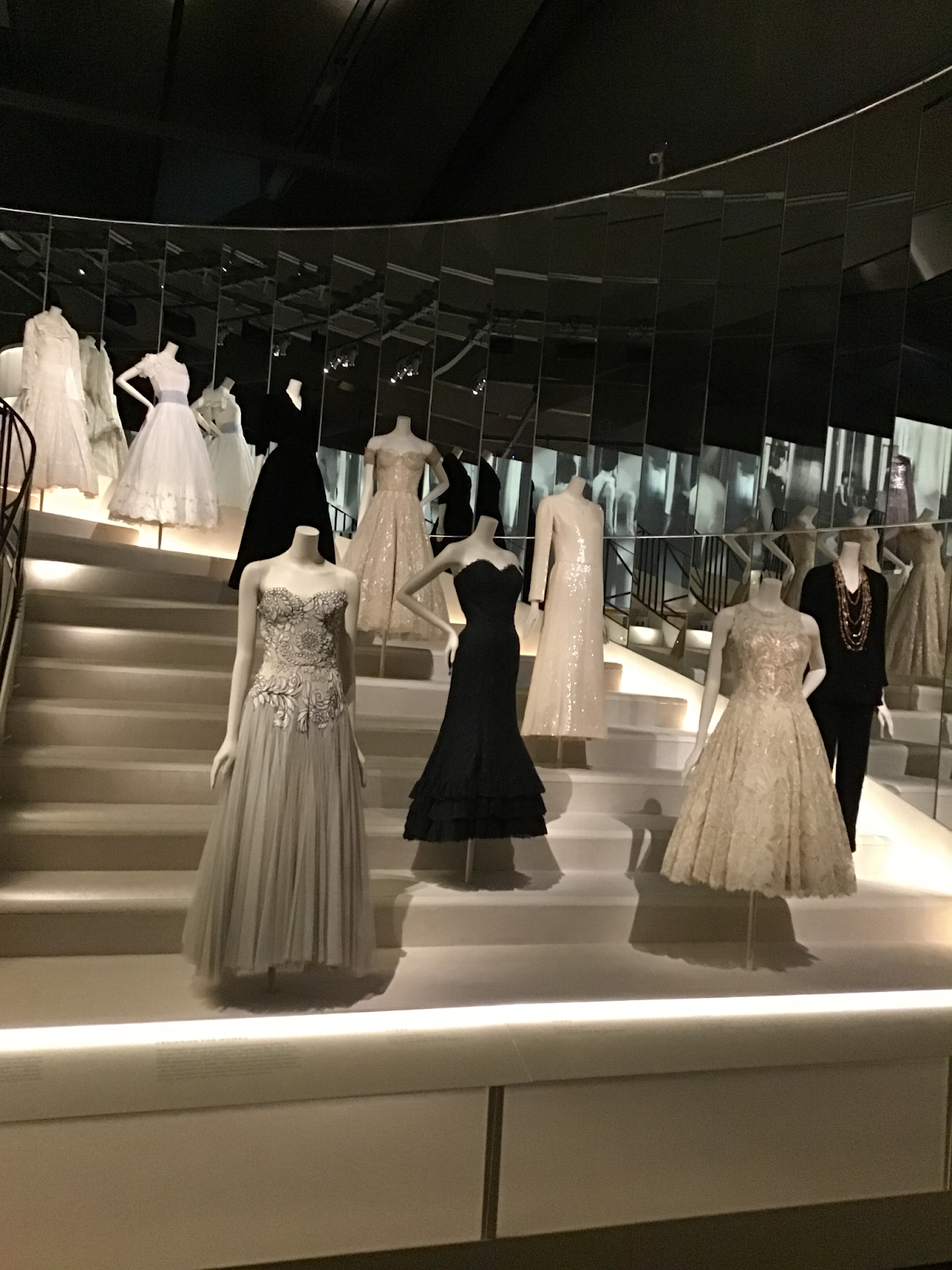
The French Department Trip to the Chanel exhibition at the V&A was an insightful experience, showcasing the designer’s stylistic progression, but also the clear cohesion in her approach to garment making. Additionally, it was interesting to see the complicated duality of her wartime persona, a member of the French resistance yet a Nazi agent. Overall, I found it to be a fascinating exhibition.
Y12 student
6th Form Spanish Trip to the National Theatre to see La casa de Bernarda Alba
A level Spanish set text followed by Spanish tapas
On 6th January both Spanish and drama students went to the National Theatre to see Alice Birch’s modern take on the 1930s Spanish play “La Casa de Bernarda Alba”. Originally set in Franco’s Fascist Spain, this new interpretation of the script intends to highlight the feminist messages of the original and warn of the dangers of oppression. The set involved a multi-tier model of the house with all the rooms in view at once, making it feel alive and like an actual house as maids flitted about tidying up and the sisters got on with their daily life in their rooms. At times multiple scenes happened concurrently.
We then visited a Spanish restaurant called ‘La Gamba’. La Gamba was the perfect finish to the evening with its authentic Spanish desserts which were accompanied by swift service from the staff. The cinnamon churros with Spanish hot chocolate and basque cheesecake lightened the mood after the intense end to the play and made for a good experience of Spanish cuisine.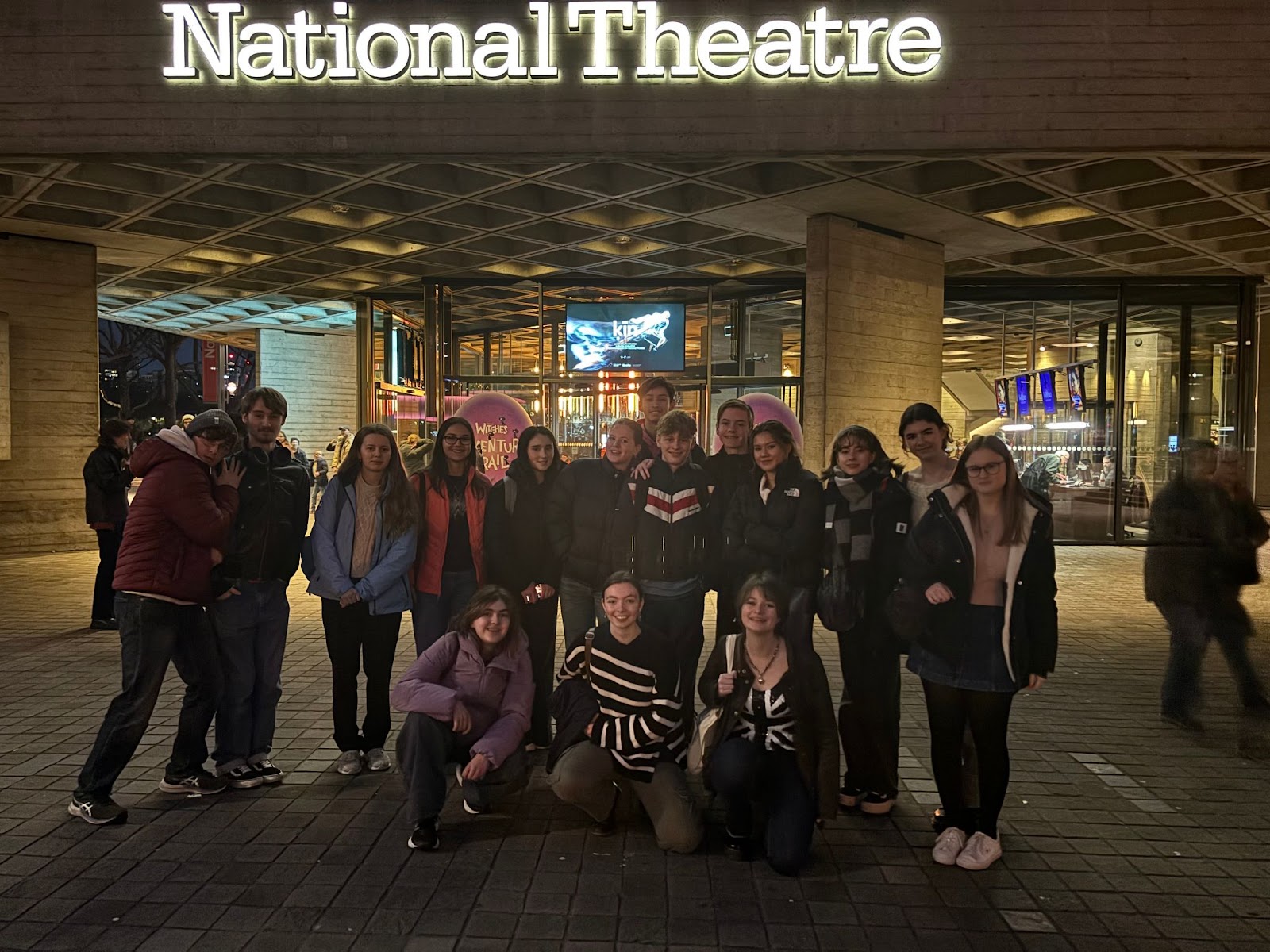
(Year 12 Spanish A Level Class)
Making Modernism - Kunst auf Deutsch! 6th Form German Trip to the Royal Academy to see “Making Modernism”
The German Department took the 6th Form Germanists to see the ‘Making Modernism’ Exhibition at the Royal Academy, London. Making Modernism was the first major UK exhibition devoted to the pioneering women working in Germany in the early 1900s. There were many works from Paula Modersohn-Becker, Kӓthe Kollwitz, Gabriele Münter and Marianne Werefkin, alongside some lesser known female German artists. This was a wonderful chance to see so many works of these artists in one place, comparing styles and influences. Alongside the bold use of colour in Modersohn-Becker’s paintings, we were left with the haunting images of pain and suffering within Kollwitz’s lithographs. Students were able to reflect upon what we had learnt in their A level course about the artistic movements in German-speaking countries. The visit was rounded off with the obligatory nod to the German tradition of Kaffee und Kuchen in the RA cafe.

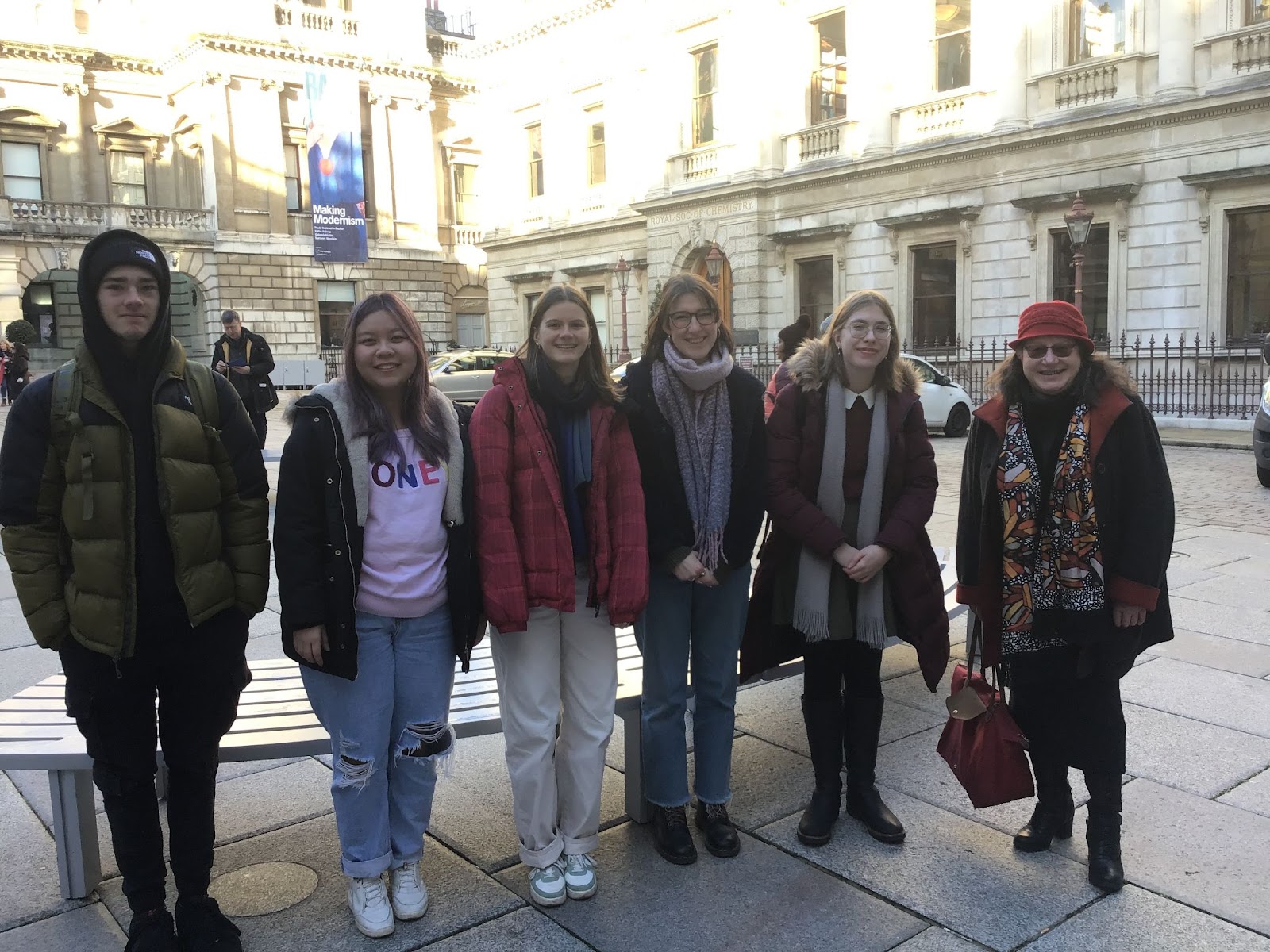
Japanese and Drama Trip to the Barbican to see “My Neighbour Totoro”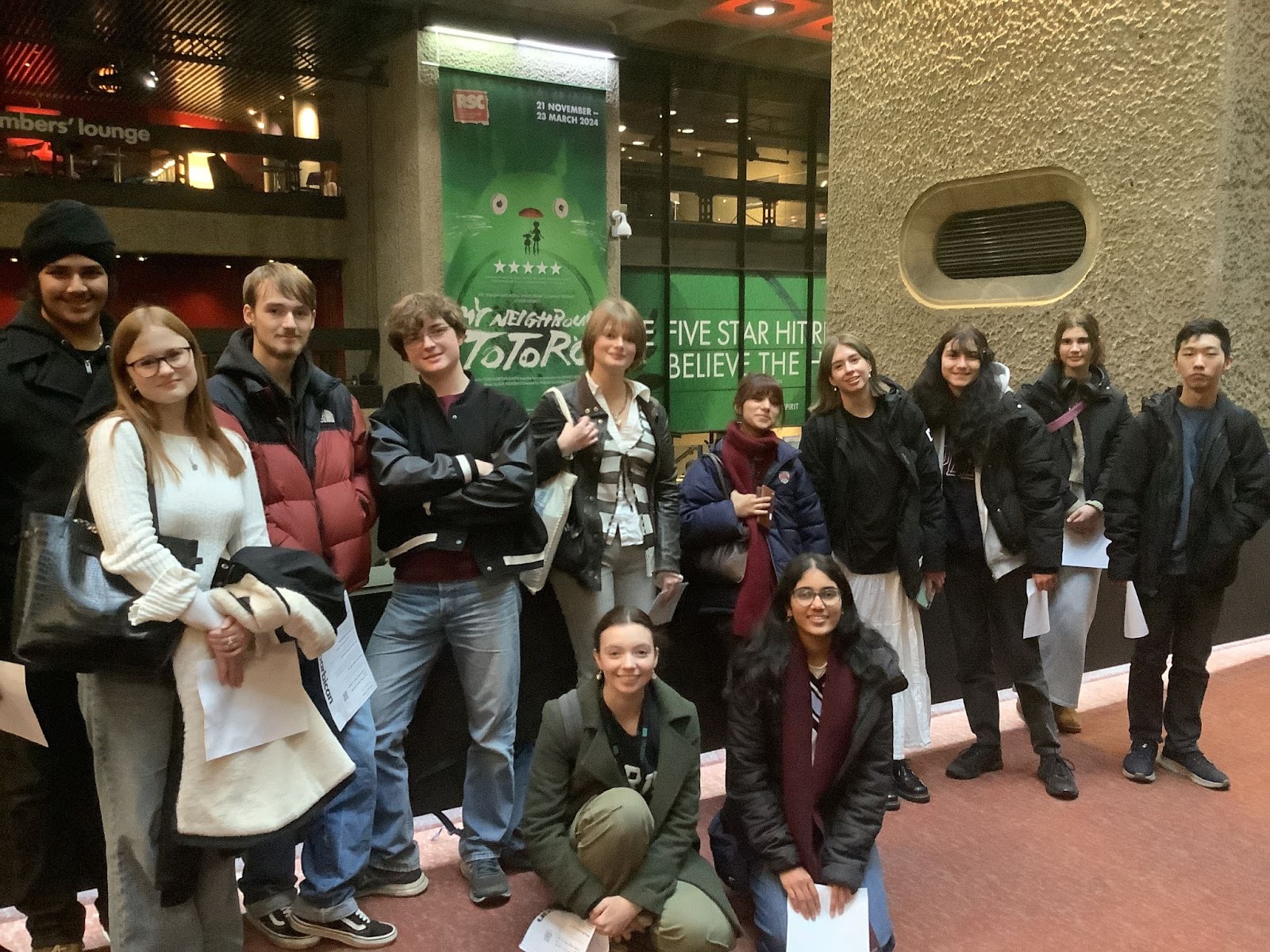
Chinese Trip to British Museum and Chinatown

Japanese
Japanese is offered in Year 12 according to staff availability and student demand. The courses may lead to GCSE. The GCSE examination includes tests in reading, writing and listening.
Interested in a dream trip to Japan?
Two Year 12 and two Year 10 students are invited by Keio High School to visit Japan during the February half term, with partner students from Keio spending two weeks in Cambridge. Highlights include an overnight trip to an onsen spa, visiting the Emperor’s tea garden and temples in Tokyo, calligraphy and origami lessons, and trying on kimonos. Keio school itself shares the Fujisawa campus of the world famous Keio university, and our time in school exploring clubs, classes and culture, as well as time with exchange families, offers a unique and fascinating insight into daily Japanese life.
To participate in the Keio scholarship exchange, students must contact mgb@stephenperse.com BEFORE starting Year 12, as interviews are held in June to learn more about the trip and about how to apply.
Course content
Content is based on themes addressing a range of social issues and trends, as well as aspects of the political and artistic cultures of the countries and communities where the language studied is spoken.
Oral, aural, reading and writing skills are practised within these themes and this provides a balanced framework for progression
-
Reading - You will learn to read, understand and respond to a variety of written texts in the target language, taken from authentic sources covering different contexts, registers, styles and genres.
-
Listening - You will listen to contemporary recordings from a range of sources such as online news items, announcements, interviews and discussions.
-
Speaking and Writing - You will be taught how to write essays and how to converse and discuss in the target language, adapting it appropriately for different situations and purposes. You will be able to express facts and ideas in the target language presenting explanations, opinions and information both as speech and writing.
Grammatical accuracy will be rewarded and will enable you to present information and organise your arguments effectively.
-
Literature - You will be studying literary texts and films. You will analyse them in the target language and gain a deeper understanding and appreciation of these works. You will be considering key concepts and issues as well as consider the social context, as appropriate to the works studied.
Assessment
Paper 1
Listening, reading and translation, 2hrs, 40% (AQA 2hrs 30mins, 50%)
Questions based on several authentic recordings; questions based on several written texts; an unseen passage to be translated from target language to English.
Paper 2
Written response to works and translation, 2hrs 40 mins, 30% (AQA 2hrs, 20%)
Translation from English into target language. Two extended written responses on either two literary texts or one literary text and one film.
Paper 3
Speaking, 22 mins approx, 30% (AQA 30%)
Task 1: The student discusses one theme from the specification based on a stimulus containing two different statements.
Task 2: The student presents a summary of the key findings of the written sources he/she has used for his/her research and answers questions on this. This is followed by a wider discussion on their research.
Mandarin A Level (Pearson)
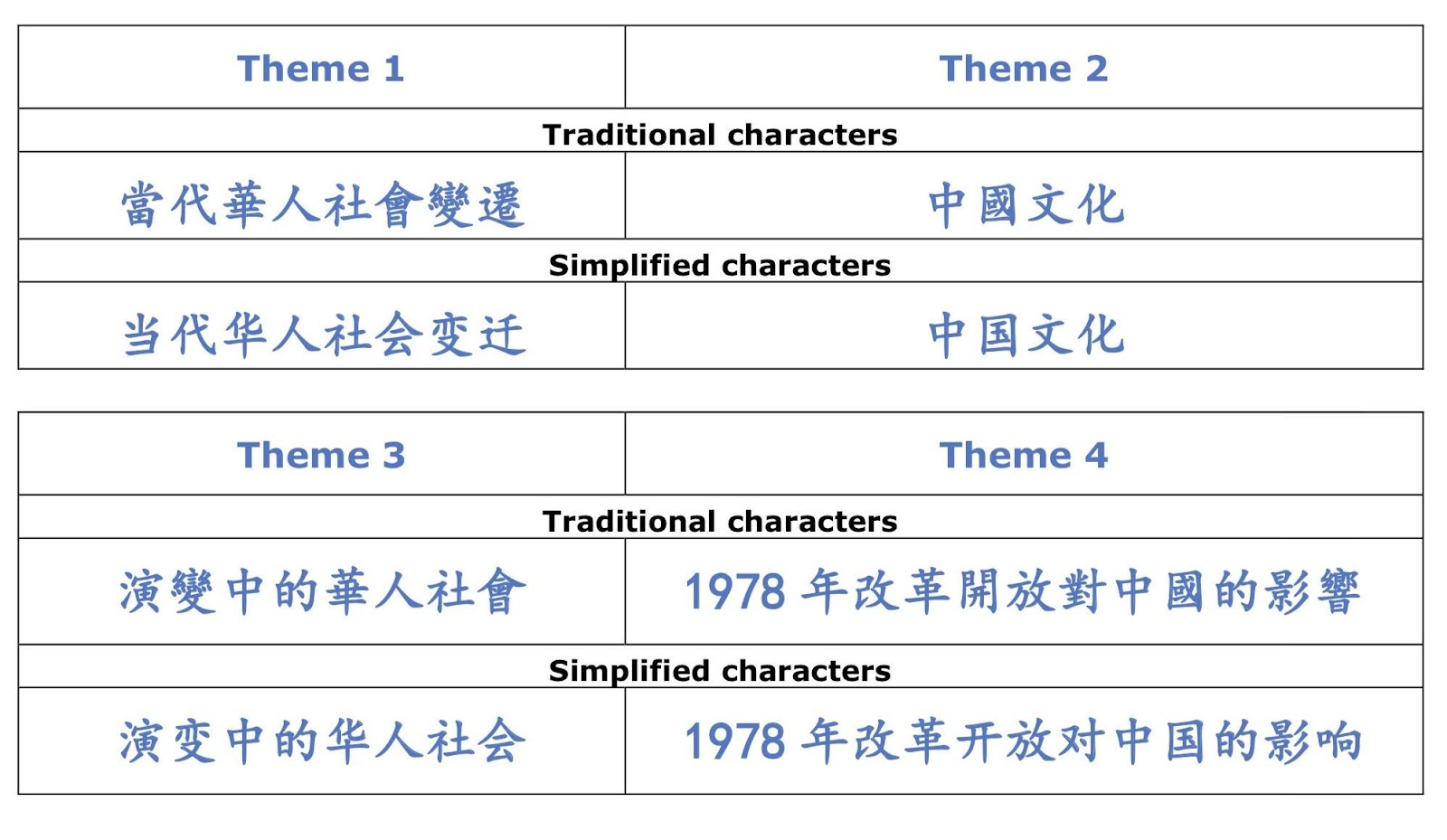
Set Texts
French PEARSON A level - Examples of topics we will be studying
Social issues and trends:
- Changing family structures
- Education
- The world of work
- Immigration
- The French multicultural society
Political/intellectual/artistic culture:
- Music
- Media
- Festivals and traditions
- The Occupation and Resistance
Literary texts we might be studying:
- Guy de Maupassant: Boule de Suif (Un Duel, Deux Amis, La Mère Sauvage)
- Molière: Le Tartuffe
- Albert Camus: L’Étranger
- Joseph Joffo: Un sac de billes
Literary films we might be studying:
- Louis Malle: Au Revoir les Enfants
- Mathieu Kassovitz: La Haine
- François Truffaut: Les 400 Coups
- François Truffaut: Le Dernier métro
German AQA A level - Examples of topics we will be studyingSocial issues and trends:
Political/intellectual/artistic culture:
Literary texts we might be studying:
Literary films we might be studying:
|
Spanish - AQA A Level- Examples of topics we will be studying:
Aspects of Hispanic society:
- Modern and traditional values
- Cyberspace
- Equal rights
Multiculturalism in Hispanic society:
- Immigration
- Racism
- Integration
Artistic culture in the Hispanic world:
- Modern day idols
- Spanish regional identity
- Cultural heritage
Aspects of political life in the Hispanic world:
- Today's youth, tomorrow's citizens
- Monarchies and dictatorships
- Popular movements
Literary texts we might be studying:
- Federico García Lorca La casa de Bernarda Alba
- Ramón J. Sender Réquiem por un campesino español
- Laura Esquivel Como agua para chocolate
Literary films we might be studying:
- El Laberinto del Fauno
- Volver
Mandarin A Level (Pearson)
《一只叫凤的鸽子》(作者 曹文轩), 2014 (short story)
《城南旧事》〈惠安馆〉〈爸爸的花儿落了〉 (作者 林海音), 1960 (autobiographical novel)
《故乡》(作者 鲁迅), 1921 (novel)